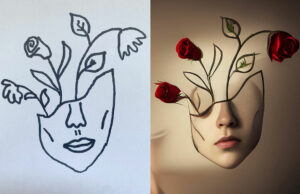THE Intellectual Property Office of the Philippines (IPOPHL) said it is planning to release guidelines that will ensure copyright protections in the application of artificial intelligence (AI) in creative works.
At the Philippine International Copyright Summit on Monday, IPOPHL Director General Rowel S. Barba said many questions need to be cleared up regarding AI use in the creative industries.
“With questions on ethics and law, such as whether AI can be protected with copyright, whether AI works can be original as a derivative of existing copyrighted works, and whether works made with the help of AI should give credit to the software, its developers, and trainers, IPOPHL attempts for answers,” Mr. Barba said.
“We will soon release guidance on this for artists,” he added.
“We are hopeful that the Philippine government will be able to come up with one AI regulation. It appears that the different government agencies are doing their own, but hopefully we’ll be able to integrate and consolidate all of those in one guideline,” he added.
Currently, he said creative works must be the work of a natural person to be eligible for copyright protection.
“We require disclosure in our application form whether or not it was made by a machine or a person. We do not register those made by machines. And we also require disclosure how much percentage was made by AI. These have been the practice over for the past year,” he added.
He said the threshold for accepting works with AI-generated content is now being determined.
Emerson G. Cuyo, IPOPHL Bureau of Copyright and Related Rights director, said that the focus of the guidelines will be on copyright registration.
“Part of the guidelines that we will come up with is particularly focused on copyright registration, similar to what was released by the US Copyright Office sometime in 2010,” Mr. Cuyo said.
“We rely heavily on the disclosure of the applicants … what’s for sure is that works that are wholly generated by AI do not pass the requirement for copyright protection under our law. But for partially generated works, that’s where the confusion is, and that’s where guidance will come in,” he added.
He said technology might help determine which creative works are wholly or partially generated by AI.
“We have to acknowledge that the modern tools of today will be more deeply involved in the creative process in the years to come,” Mr. Barba said.
“We need to come up with solutions to live in harmony with technology and AI,” he added.
OTHER LAUNCHES
Separately, Mr. Barba said that IPOPHL will also soon launch its Copyright Registration Search and Public Domain Registry.
“This search system will offer a user-friendly way for checking copyright registrations filed in IPOPHL. This will be updated monthly with future plans to slowly include copyright registrations filed in the National Library of the Philippines,” he said.
“In the long run, we hope to create a truly unified, national copyright registry for the Philippines,” he added.
He also said that the IPOPHL is also working on being a designated International Standard Name Identifier (ISNI)-Registration Agency.
ISNI is used globally by libraries, publishers, databases, and rights management organizations.
“We envision a globally competitive creative economy. And to realize this vision, we need to make Philippine creative works more visible to global users and investors,” he said.
“Once IPOPHL is able to issue ISNI to authors, artists, and organizations, they will be more easily found, and their works can be more easily tracked, possibly no less by investors who could provide additional income streams to our artists and expand the creative endeavors of creative companies,” he added. — Justine Irish D. Tabile
